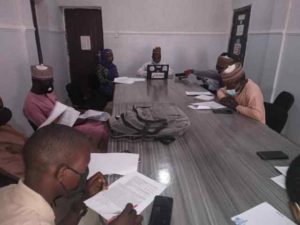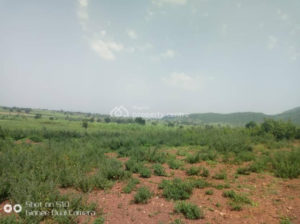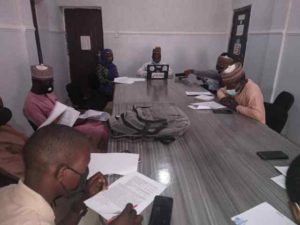
The Centre for Information Technology and Development have issued an advisory on safety protocols In Kano Secondary schools, this was revealed in a statement signed by Ali Sabo, Campaign and Communication Officer at the CITAD.
The statement read in part we are all aware that Covid-19 has become a threat to our lives, economy, social, education as well as every aspect of our lives.
As of yesterday, 31st January, 2021, it has been reported that more than 100 million individuals have been infected with this deadly virus with more than 2.2 million casualties globally (Aljazeera English). In Nigeria, as reported by the Nigeria Centre for Disease Control (NCDC) so far the country has 131,242 confirmed cases with 1,586 casualties
While speaking on the source of the virus, it was noted that while the source of origin and transfer to humans is not known, human transfer has been confirmed widely.
“The coronavirus virus (COVID-19) is a highly transmittable and pathogenic viral infection caused by severe acute respiratory syndrome coronavirus 2 (SARS-CoV-2), which emerged in Wuhan, China in 2019 and spread around the world. Genomic analysis revealed that SARS-CoV-2 is phylogenetically related to severe acute respiratory syndrome-like (SARS-like) bat viruses, therefore bats could be the possible primary reservoir. The intermediate source of origin and transfer to humans is not known, however, the rapid human to human transfer has been confirmed widely. COVID-19 made its official landing in Nigeria on 27th February, 2020 via Lagos and spread across the country like wildfireâ€
.
CITAD recalled that the Kano State Government heeded the calls made by different stakeholders in the state, after receiving a green light from the Federal Government for all schools in the country to resume academic activities, the state government set up a committee under the chairmanship of the States Deputy Governor who is the Chairman States Task Force Committee on Covid-19.
The Committee was saddled with the responsibilities of coming up with strategies and road map on how the schools would be reopened in the state. Some of the policies came up with by the committee for schools including Islamiyya schools in the state included;
That, Primary 1 and 2 pupils were to attend classes only on Mondays and Tuesdays while Primary 3, 4 and 5 pupils will attend classes only on Wednesdays, Thursdays and Fridays. Also, JSS 1 and SS1 students in both public and private schools are to wait at home for additional five weeks until the end of transitional and qualifying examinations to ensure social distances in classes and hostels. In the same vain, JSS 2, JSS 3 & SS 2 were to fully resume in preparation of the forthcoming qualifying and transitional examinations among other recommendations such as compulsory wearing of face mask, social distancing .
CITAD noted that during the first reopening, a survey was conducted to assess the compliance of these Covid-19 safety protocols in the secondary schools in the state as prescribed by the state Task Force Committee on Covid-19.
This was done with support of MacArthur Foundation and International Institute of Education on the 25th and 26th of November, 2020 . 60 secondary schools were captured by the state.
According to Ali,
“ The essence of conducting the survey was to: ascertain the level of compliance with the Covid-19 safety protocols in schools as prescribed by Kano State government and Nigeria Centre for Disease Control (NCDC), understand the gaps that are in existence in terms of complying with the Covid-19 protocols in the schools, generate data that will be used to advocate to concerned authorities for proper action as it has been proven that Covid-19 is a disease that can be transferred easily between person to person by either contact with persons, objects or through fluid. For the sampling of the schools, the survey sampled 60 schools, 20 schools each from the three zones (Kano Centre, Kano North and Kano West) in the state which comprised senior and junior secondary schools, science, conventional, special schools, girls, boys and mixed schools in the stateâ€
CITAD listed some of their findings as below;
That there is little observance of social distancing in class rooms, dormitories, sporting arenas and dining halls. Also, Hand sanitizers are only being provided at the gates of the schools, students are required to wash their hands at the gates but the use of hand sanitizers in classes, hostels and schools premises is minimal as at the time of the research.
Class rooms, hostels, dining, laboratories and other facilities are not being disinfected regularly; Temperature check for visitors and students temperature at the gate of the schools is compulsory ; Thermometers for temperature checks are not adequate,The report noted.
While wearing of facemask was said to be compulsory, Students compliance of wearing of Face masks in the schools premises is very minimal and the authorities are not enforcing it
“Teachers are not complying with social distancing and wearing of Face masks; Teachers were properly being sensitized about the importance of observing Covid-19 protocols but students were not being sensitized properly; There is poor or no mechanisms in place by the government to ensure compliance with the directed protocols in school; Schools are poorly financed to provide adequate availability of hand sanitizers and Face masks for students and staff on a daily basis ; There have not been sufficient public awareness and sensitization programmes in many of the schools and among the students, there is still doubt about the reality of COVID 19â€
Based on the above findings CITAD called on the Kano State Government to ensure the prompt implementation of the following recommendations in order to safeguard the lives of both students and their teachers:
1. The state government should provide more structures in schools to minimize congestion in the class rooms and hostels
2. The State government should provide adequate protective materials such as hand sanitizers, Face masks, thermometers and disinfection materials. This can be done through mass purchase and distribution of these to the schools
3. More sensitization to the teachers and students on the importance of observing Covid-19 protocols
4. Schools authorities should ensure the enforcement of all Covid-19 protocols in their schools by setting a Covid-19 Task Force Committee in their schools
5. There should be regular disinfection of classes, staff rooms, dining halls and students hostels
6. The Ministry of Education should establish a mechanism that will go to schools to observe compliance with the protocols. This mechanism can be an add up function for the School Inspectorate Department. However, in this case schools inspection must be regular
7. There should be sustained sensitization to reach all the schools in the state so that all students, teachers and other workers or members of school communities are aware about COVID 19 and know how to protect themselves as well as stop its spread through their action.
Sharing of the findings of the survey has become more urgent given the reality of the second wave which has made the state government to ask workers below grade level 12 to stay at home. If government is so concerned about controlling the spread of the virus at work places which have more spaces for social distancing and with individual workers capable of affording to use face masks and hand sanitizers, it is curious that schools should on the other hand reopen. Our schools are not in a position to enforce social distancing given the crowding in the schools. They cannot afford to provide face masks for pupils nor is government providing the schools with adequate and regular supply of hand sanitizers. Parents and guardians, under the present circumstance cannot be expected to bear this burden. The statement read in its closing part.





